How fake news phenomenon isolated Lyari
Documentary 'Don Akhbar' shows how one newspaper demonised an entire locality
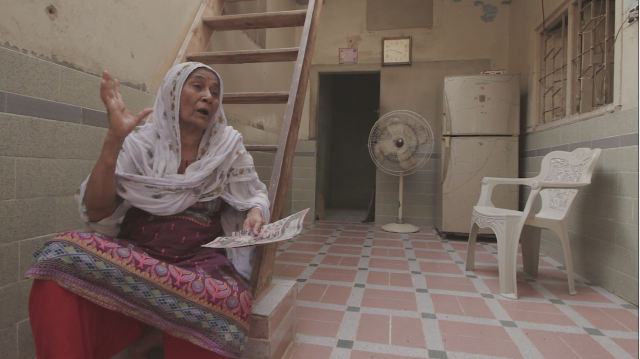
PHOTO: COURTESY DOSTAIN BALOCH
The documentary highlighted how a newspaper known as 'Jaanbaaz' became the most circulated and only publication reporting events in Lyari. Popularised during the height of the Lyari gang war between 2009 and 2015, the newspaper was found to be routinely reporting incorrect death counts, forged crime involvement and criminal profiling of ordinary citizens.
‘We are all guilty, our guilt stems from our silence’
"Someone who died of a cardiac arrest would be shown to have died in a road accident or speeding. Sometimes the cause of death would be fake, but at least we got to know that the person had died," said a woman from Lyari who was featured in the documentary. "They exaggerate things. We know that things happen, but they blow it out of proportion," added another woman.
"Once I read about firing in Chakiwara, followed by a bombing with two reported deaths and I kept thinking to myself, this is my area, I was here the whole day," a journalist from Lyari recalled in the video.
"A school boy I knew very closely was framed for eight murders and this news was published thrice…when I asked reporters, I found out that this was paid content requested by political party."
#MeToo talk pushes aside issue of harassment
Talking about fact-checking and authenticity, journalist Saher Baloch said, "There is no way to verify this news. One would be shocked to hear that apart from the community, even the police rely on this newspaper."
Pointing out the obscurity of the paper, she recounted a time when "there was news that Nabeel Gabol brought to attention the problems Lyari in the United Nations, complete with photoshopped pictures".
She went on to say that "police officials, politicians and gangsters have all referred this to this paper, calling it the 'Don Akhbar'."
The last sequence of interviews in the documentary captured the views of all the respondents, regarding the circulation of this paper, which has been, for the most part, the only news source available to them.
Fostering tolerance, one video at a time
"Just shut it down, we would be happy, very happy!" said a woman. "It should be censored by the authorities," added the male journalist.
"What can we do? Not read it?" added the other woman jokingly.
The documentary screening was followed by a panel discussion during which social and civic dynamics of the newspaper and its reception were discussed. The discussion was moderated by Dr Kirmani who first handed over the floor to Dostain, who spoke about the concept and production of this film.
"Nida's interest in making a documentary about the newspaper Janbaaz was strange, but then I realised that this newspaper was in fact more like a film script," Dostain said. "This paper has characters -protagonists and antagonists, conflicts, advertisements even item songs. I found it very interesting that this paper completely overlooked media ethics."
From history to her story
When asked about the consequences of this newspaper and making a documentary about it, Dostain said people were hesitant to talk about Janbaaz, because they feared that the paper would profile them as murderers or criminals.
"Many wanted to speak up, engage in discourse or talk about the psychological impact of this paper, but could not. Many took the opportunity to hint at its implications. Perhaps this is a secret that lies within Lyari," he said.
Contextualising the circulation of this paper, Ziaur Rehman, who is an expert on community journalism, pointed out that there was a surge in the dissemination of Janbaaz during the Lyari gang war period. It exacerbated the stereotyping and isolation of Lyari.
The quest to encapsulate Pakistan cricket
Wahid Noor, a lawyer who has lived in Lyari for the past three decades, spoke about the social and economic exclusion residents of Lyari have been facing. He said that this kind of reporting has "added fuel to the fire".
"Cab drivers refused to take rides from our towns, employers did not want hire people who would mention Lyari in their home address," he lamented. "Hawkers or street sellers who are Lyari residents and earn daily wages saw the worst consequences because they would read about chaos in the paper and not go out to earn. They relied on this paper to plan their daily activities."
Noor stressed that this paper completely destroyed the image of Lyari and said that this paper and others of its kind are 'total garbage'.
"They made our hometown notorious, they demonised Lyari when the whole of Karachi was burning," he said.


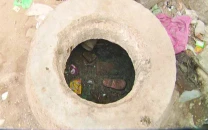

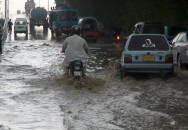
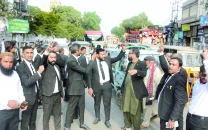
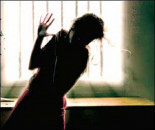
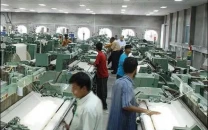
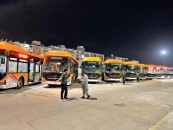
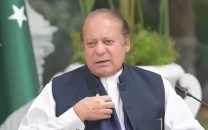

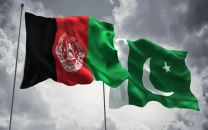
1726134115-0/BeFunk_-(41)1726134115-0-208x130.webp)






COMMENTS
Comments are moderated and generally will be posted if they are on-topic and not abusive.
For more information, please see our Comments FAQ